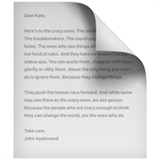Giardinetto del Corvetto

Introduction
Given the lack of collective imagination for the steps to take towards a more solarpunk world, I tried to create a list of solutions by scouring the internet for a long time.
I failed several times both in categorizing it and in making it
exhaustive, so I thought I would cut to the chase and create a direction to help imagine solutions and evaluate what to do.
exhaustive, so I thought I would cut to the chase and create a direction to help imagine solutions and evaluate what to do.
We start from the premise that to achieve a revolution or transition,
one must always think on two tracks: destroy the past, create the
future. Remove power from the current system and increase the power of the system we want.
one must always think on two tracks: destroy the past, create the
future. Remove power from the current system and increase the power of the system we want.
There are no perfect choices that embody all solarpunk values because we live in a non-solarpunk world, and this means that sooner or later we will clash or have to interface with other ideals that are not at all compatible, such as capitalism.
The idea is to get our hands dirty so that in the future we won't have to. Break eggs to make an omelet, and so on.
Some of the needs we have as individuals and as a society might not be well categorized by this taxonomy because I mainly imagined it as a tool to help think about "what to do?" in terms of practical actions that can also scale and be sustainable.
I will try to outline the differences with some examples:
contributing to Wikipedia is an individual action but supported by an organization that goes beyond the individual and is therefore part of the collective; making your own wiki, while it can still be an action to take power away from social networks and also a form of personal expression, is somewhat weak and unsustainable from the perspective of liberating information. Of course, someone will still need to write on Wikipedia, and to create a new collective project, individuals will still need to write, so individual actions are unavoidable. Someone will have to write posts for their organization's social media channels, someone will have to prepare food for possible events, and so on;
explaining to a stubborn conservative relative who watches fox news every night that "woke" is mostly an American phenomenon and it is just a propaganda tool to distract us from real problems is definitely a good thing but will never have the impact of a project that reaches many stubborn relatives en masse; moreover, it will never have the impact of opening these people to diversity by having them encounter "the other" (what they consider as such), perhaps collaborating on common projects;
using Yunohost might set free the user, but teaching how to use it and putting it at the service of an organization or community are the real actions for the collective. This does not mean that one should not also free oneself individually, but ideally, one should not stop there and should
not spend all one's power on it.
not spend all one's power on it.
We need to liberate:
1.
time, attention (also as cognitive load) and our energies
care
consumption
entertainment (also in the broad sense of expression)
food
knowledge
nature
technology
urbanism and ruralism
work and markets
Categorization
Tags for type of impact
#creation (increase in our own system power)
#distruction (reduction of enemy system power)
Tags for choosen form of organization
#organization/:
b-corp
collective (informal collective)
company (vertical company)
company but owned by one or more no profits or coop
coop (cooperative)
non profit
Tags for main area (indirectly everything impacts everything else) of impact
#time-attention-energy
#care/:
accessibility
love
medicine
nutrition
pharmacy
psyche
safety
self
#consumption/:
1.
reduce
2.
reuse /use what you have
3.
repair
4.
borrow / lend
5.
swap / receive as a gift
6.
thrift
7.
build (using repurposed recycled stuff or it could be worse than buying new in some cases)
8.
buy new (BIFL buy it for life when possible)
9.
share / gift / sell (when you no longer need it)
10.
repurpose (shoes box that becomes a storage box)
11.
recycle (if no one arounds you needs it)
#food/:
1.
production
2.
preservation
3.
processing
4.
recipes development
5.
cooking
#entertainment/:
art
drugs
events
sex
sport
travel
#knowledge/:
access
education
#nature/:
animals
conservation
rewilding
#technology/:
energy reduction/production/storage
open/closed
software/hardware/materials
repairability
#urbanism/:
housing
community centers
bikeability
walkability
ruralism
public transport
#work and markets/:
cooperativism
reduction (of working time)
union
Small clarifications
I created this tagging system primarily for myself, to help me think through the lens of a functional ecology and to better map realities that can serve as examples to copy or even improve upon.
We could say that the second part is mainly a tool categorization.

